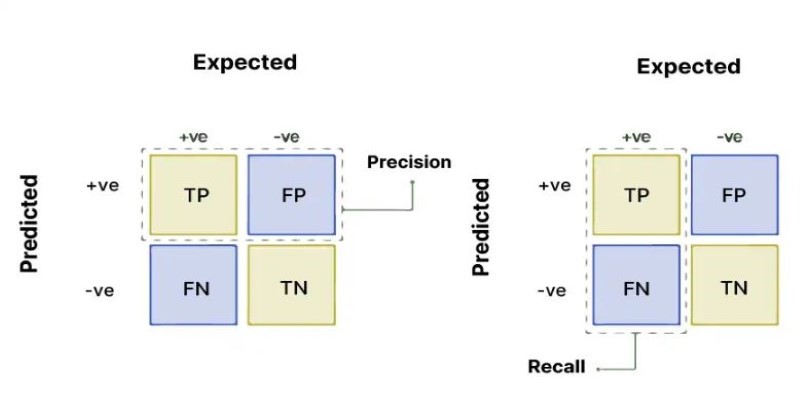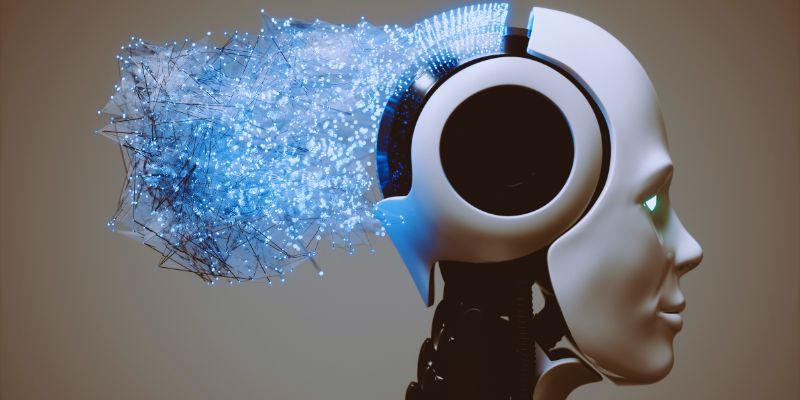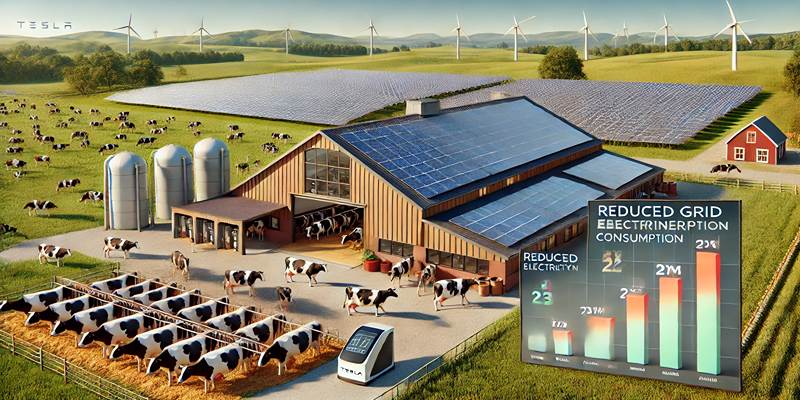Artificial Intelligence (AI) is making a significant impact on the film industry. From helping writers develop scripts to enhancing visual effects, AI is changing the way movies are made. This post will explore how AI is being used in filmmaking, covering scriptwriting, editing, visual effects, and more.
AI has already influenced multiple areas of our daily lives, and now it’s reshaping the way movies are created. With advancements in machine learning and automation, AI enables filmmakers to make better creative decisions, optimize budgets, and enhance cinematic experiences. This shift has led to a more streamlined production process, allowing creators to focus on storytelling while AI handles technical aspects.
AI in Scriptwriting: Can AI Write a Blockbuster?
One of the hardest parts of making movies is writing the script. In the past, innovation was limited to humans, but now AI is being used to help screenwriters come up with interesting stories.
- AI-powered writing tools analyze thousands of successful scripts to generate ideas, suggest dialogues, and improve story structures.
- Predicting audience preferences by analyzing past box office hits and suggesting what type of content might be successful.
- Assisting screenwriters rather than replacing them by offering insights into character development and storytelling techniques.
- Generating plot twists and endings based on audience trends, helping writers craft more engaging narratives.
Popular AI tools like ChatGPT, Sudowrite, and ScriptBook are already being used to refine movie scripts and enhance storytelling. AI-generated scripts have been tested in short films, with some showing promising results. However, AI still lacks the emotional depth and originality that human writers bring to storytelling.
AI in Pre-Production: Smart Planning and Budgeting
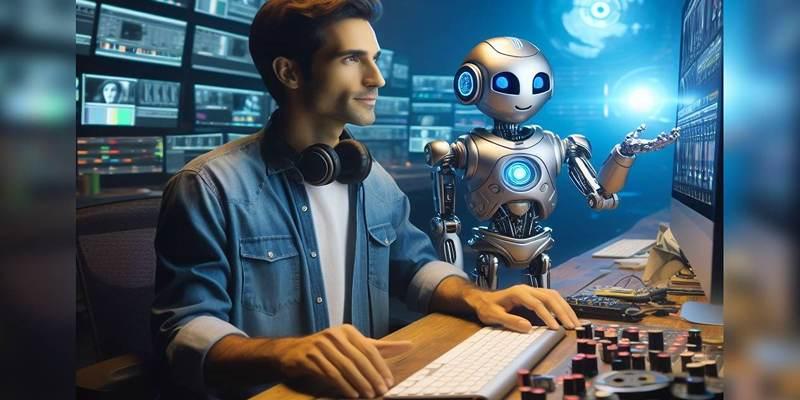
AI is also transforming the pre-production process, making planning more efficient and cost-effective.
- AI-driven scheduling software helps filmmakers organize shooting schedules based on actor availability, location conditions, and production requirements.
- Budget prediction tools analyze financial data from previous films to provide accurate cost estimates.
- AI in casting can analyze actors’ past performances and recommend the best match for a specific role.
- Set and location optimization allows filmmakers to choose the best settings based on AI-driven weather and logistical analysis.
Filmmakers can use these tools to streamline their workflows, reducing wasted time and resources. AI has also been used to digitally scout locations, reducing travel costs and allowing directors to visualize their scenes before actual production begins.
AI in Filming: Enhancing Production Efficiency
Once production starts, AI plays a crucial role in making the filmmaking process smoother and more efficient.
- Smart camera systems use AI to track movements, adjust lighting, and focus automatically.
- AI-based cinematography tools assist directors in framing the best shots.
- Real-time AI editing can suggest camera angles, ensuring that the best footage is captured without the need for reshoots.
- AI in virtual production enables real-time rendering of CGI environments, helping actors interact with digital surroundings seamlessly.
For example, in the Disney+ series The Mandalorian, AI-powered virtual production techniques helped create realistic backgrounds without relying on traditional green screens. This method reduces costs and improves efficiency, offering filmmakers new creative possibilities.
AI in Post-Production: Editing and Visual Effects
Post-production is where AI truly shines, offering tools that improve editing and create breathtaking special effects.
AI in Editing
- Automated video editing tools analyze hours of footage and select the best clips for final production.
- Scene segmentation helps editors identify and arrange scenes more efficiently.
- Color correction and enhancement are now AI-driven, allowing for better consistency and mood setting.
- Audio enhancement and noise reduction improve dialogue clarity and sound quality.
- AI-generated subtitles and dubbing help make films more accessible to global audiences.
AI-based editing tools like Adobe Premiere Pro’s Sensei AI and IBM Watson’s video analysis are helping filmmakers speed up the editing process while maintaining high quality.
AI in Special Effects
- Deepfake technology is being used to create realistic digital characters or de-age actors.
- AI-generated CGI (Computer-Generated Imagery) enhances realistic visuals while reducing production time and costs.
- AI-powered motion capture allows animators to create lifelike characters without needing expensive equipment.
- Facial recognition for CGI characters improves realism by mapping human expressions onto digital characters.
Movies like The Irishman and Avengers: Endgame have already used AI-powered effects to create stunning visuals. AI is also used in de-aging actors, allowing for more immersive flashback scenes without the need for extensive makeup.
AI in Film Marketing and Distribution
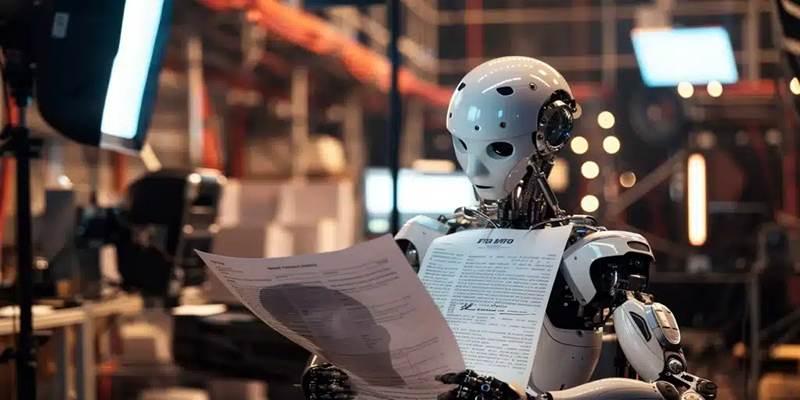
AI is not just limited to film production—it also plays a key role in marketing and distribution.
- Predictive analytics help studios decide the best release dates based on audience behavior.
- Personalized movie recommendations improve streaming platforms like Netflix and Amazon Prime.
- AI-driven trailers can be generated by analyzing movie themes and selecting the most engaging clips.
- Sentiment analysis on social media provides insights into audience reactions and helps studios adjust marketing strategies.
With AI’s help, studios can optimize marketing strategies to reach the right audience. AI-generated movie trailers, like the one for Morgan (2016), have demonstrated the technology’s ability to select compelling scenes that grab viewers’ attention.
Conclusion
AI is transforming the film industry from scriptwriting to special effects, making movies more innovative and engaging. While AI assists filmmakers in various stages of production, it does not replace the need for human creativity. Instead, it provides tools that streamline workflows, enhance visual quality, and improve storytelling. As technology continues to advance, you can expect AI to play an even bigger role in shaping the future of cinema. However, the core of filmmaking—human creativity, emotion, and storytelling—will always be irreplaceable. With AI as an ally, filmmakers can push the boundaries of what’s possible and deliver even more captivating cinematic experiences to audiences worldwide.

